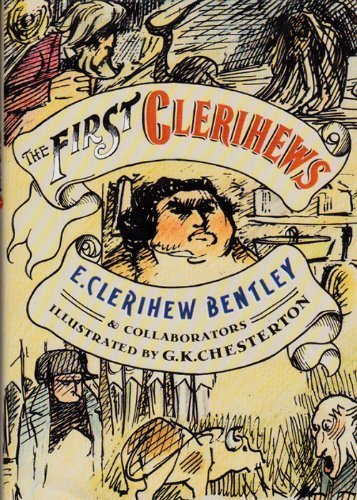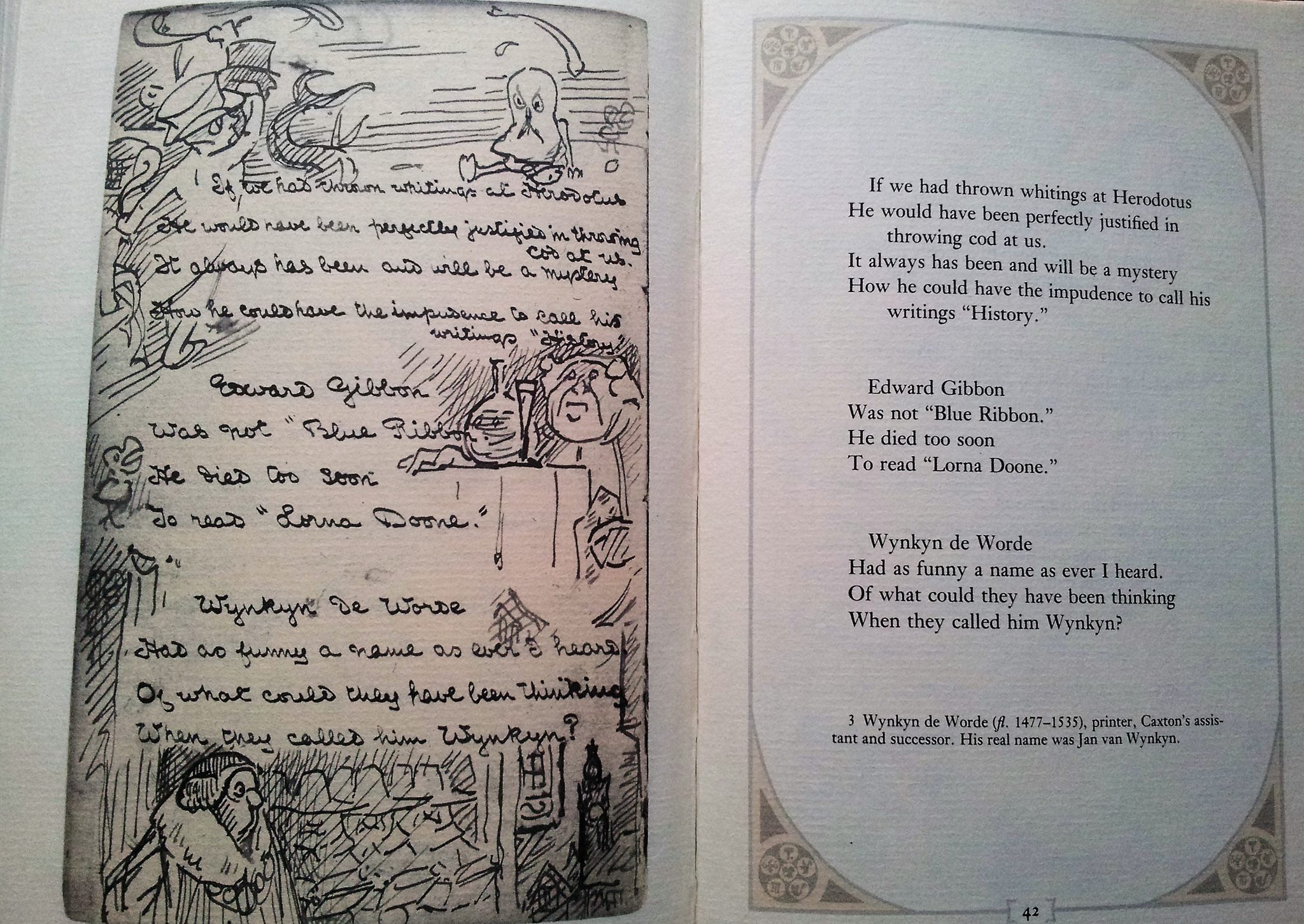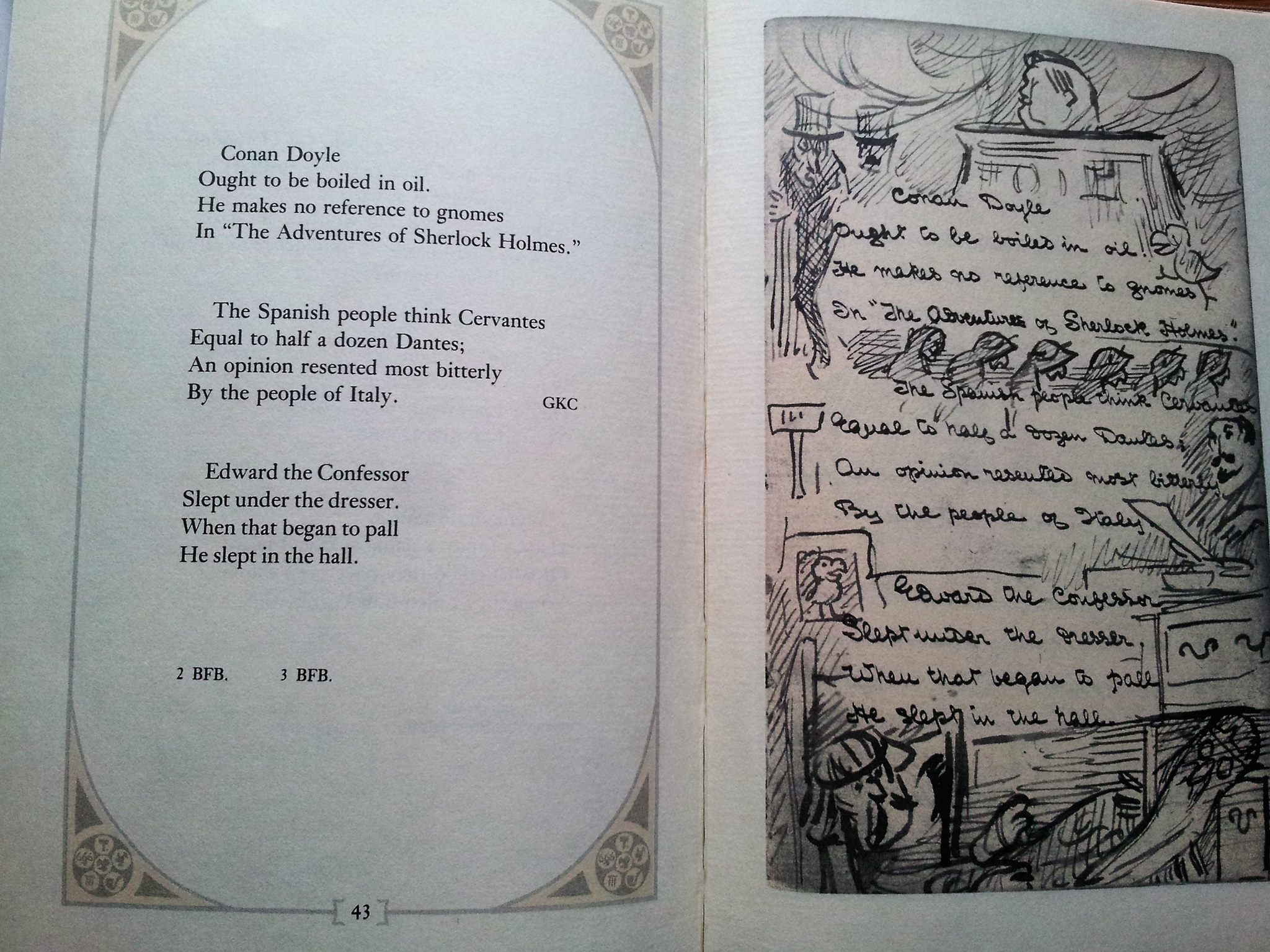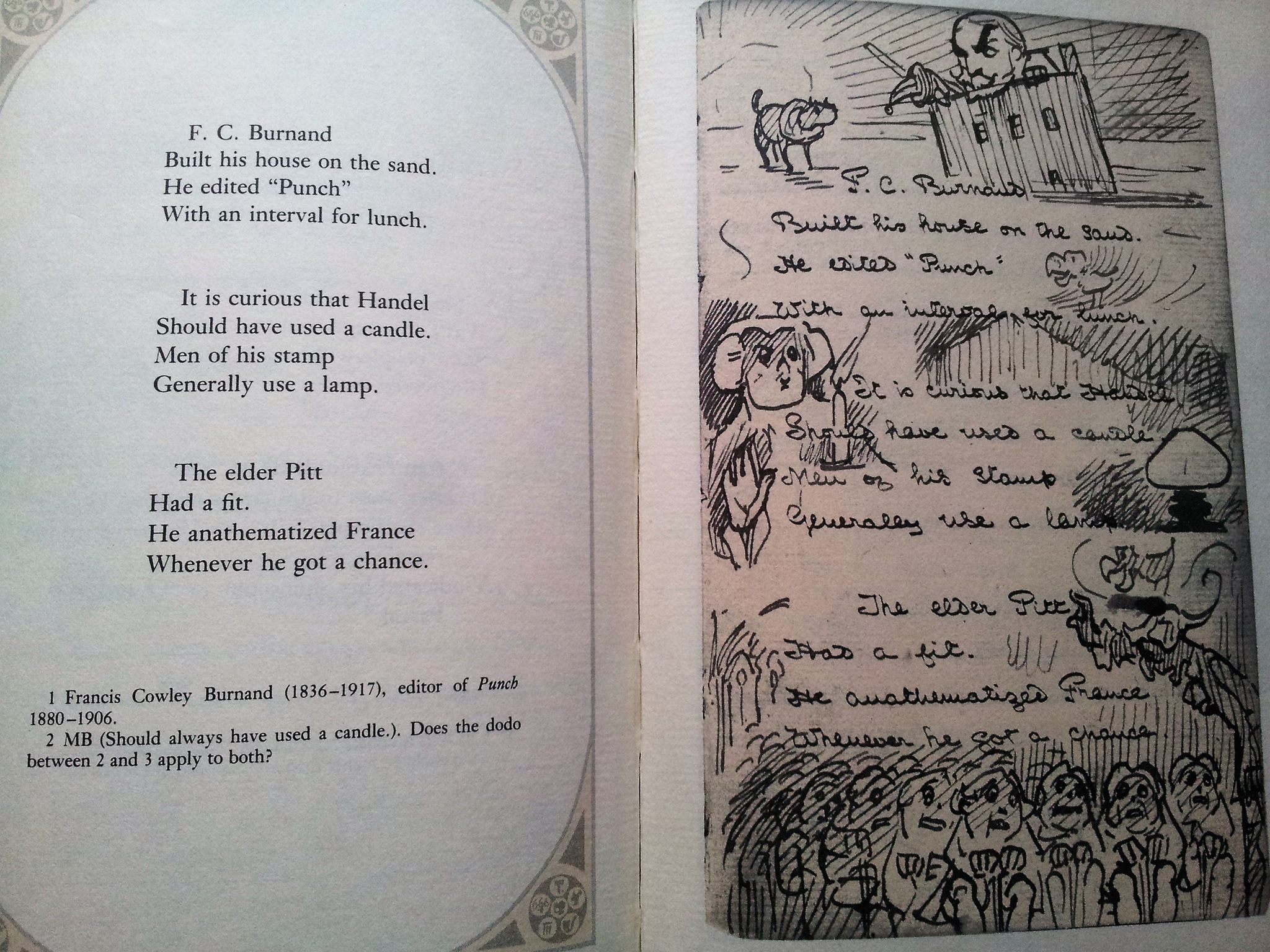I haven’t finished reading G.K. Chesterton’s autobiography yet, but, as usually happens when I read nonfiction, one thing led to another. In the chapter on his boyhood and school days, Chesterton mentions:
“The first of my friends, with whom I fought in the field, has since written the best detective story of modern times and still conceals a very powerful sense of humour under the almost impenetrable disguise of a writer on the Daily Telegraph.”
Ooh, really? The best detective story of modern times? I had to know what Chesterton thought that was. I figured that if his friend hadn’t really written something good, Chesterton would simply have not mentioned it. I love a good detective story and particularly like those of that “modern” time. The friend to whom he is referring is E.C. Bentley. Bentley published his first detective story in 1913, but the title to which Chesterton is likely referring is Trent’s Own Case written in 1936.
I didn’t want to read this story badly enough to spend much on the best detective story I’d never heard of, so I settled for a free Kindle version of The Woman in Black, the 1913 murder mystery, to get a taste of the author’s style before deciding whether to spring for $8.99 for the best one. It was a quick, enjoyable read with a twist upon a twist at the end. But that isn’t what this is about.
Chesterton goes on to say about his friend:
“He had extraordinarily well-balanced brains and could do almost anything with them; even writing an ordinary leading article for a London daily. But he could write clear and unadulterated nonsense with the same serious simplicity. It was he who invented that severe and stately form of Free Verse which has since been known by his own second name as ‘the Clerihew’ (his name is Edward Clerihew Bentley) or ‘Biography for Beginners’; which dates from our days at school, when he sat listening to a chemical exposition, with his rather bored air and a blank sheet of blotting paper before him. On this he wrote, inspired by the limpid spirit of song, the unadorned lines,Sir Humphrey Davy
Detested gravy.
He incurred the odium
Of discovering sodium.Even in those days I used to draw pictures, or what were called pictures, to illustrate these biographical rhymes; though of course it was not till decades afterwards that we either of us had a notion of publishing a book, or of publishing anything.”
In my eagerness to discover a new detective story, I had pretty much skipped over the reference to the “Clerihew” until I went online to look for Bentley’s books and also discovered this:

In this book, Bentley says he thinks this sort of nonsense verse must have come into existence when he and his friends were about 16 years old, which would have been about 1890. Each member of the group tried his hand at writing “Clerihews.” E.C. copied them into a notebook and G.K. drew the illustrations. Chesterton’s father even contributed a few. Bentley later gave the notebook to a friend whose wife, when he died, gave it to the library at St. Paul’s School, which Bentley and Chesterton had attended. This notebook was “lost” until 1981.
In 1905, Bentley published forty Clerihews in a book called Biography for Beginners: Being a Collection of Miscellaneous Examples for the Use of Upper Forms, with illustrations by G.K. Chesterton. Since the original notebook had been lost, he and Chesterton must have written those forty Clerihews from memory. More Biography was published in 1929, and Baseless Biography in 1939.
In 1982, The Complete Clerihews of E. Clerihew Bentley, was published. It was a collection of all the Clerihews from those three books. The Sunday Times ran a Clerihew-writing contest. This attracted the attention of St. Paul’s librarian, who contacted the Press and told them of the existence of that old notebook.

Part of the introduction to The First Clerihews is “The History of the Clerihew,” which Bentley had included in his 1940 autobiography. In it, he fabricates some of his “research” into the fascinating life of Sir Humphrey Davy in order to establish the first Clerihew as biography. He goes on to discuss the proper way to write such biographies.
“One must not, in the first place confine oneself merely to what is historic, in the large sense, about the life that is in question. One has to depict the man as he was, not his achievement only. I may cite as an example of failure in this sense, a biography which, because of the weakness I mean, has not been included in either of my published volumes.
Frederick the Great
Became King at twenty-eight.
In a fit of amnesia
He invaded Silesia.In this there is nothing with which the dry-as-dust historiographer could possibly quarrel. The facts are undeniable . . . Truthful and reliable– yes; even slavishly so. But where is the human appeal? Where the probing psychological touch? Frederick, after all, was something more than a dynast, a militarist, and a mental case; but in these sapless lines what hint is given us of the riches of that daemonic personality?”
What then is the proper approach to Clerihews?
“Without going so far as to say, with Mr. Henry Ford, that ‘History is bunk’, I do consider that the personal element far transcends it in importance when this special literary form is in question. For example, who can deny the excellence of the following biography, the authorship of which I do not know, and which has not, so far as I know, been published?
The Emperor Pertinax
Possessed a certain axe
With which he used to strike
Those whom he did not like.This is an admirable presentation, not of the Emperor as he played his part in the world’s stage, but of the man as he was known to those nearest and most intimate–a spirit by nature impatient, hasty, temperamental if you will; but sincere, direct, honest, in essence lovable”
Why, yes. Of course. The personal touch.
And the complete lack of shame in reaching for a rhyme. I can almost see this group of boys lounging in one of their parents’ living room revelling in their own cleverness. Bentley and Chesterton seem never to have lost the sense of fun that inspired the Clerihew.

